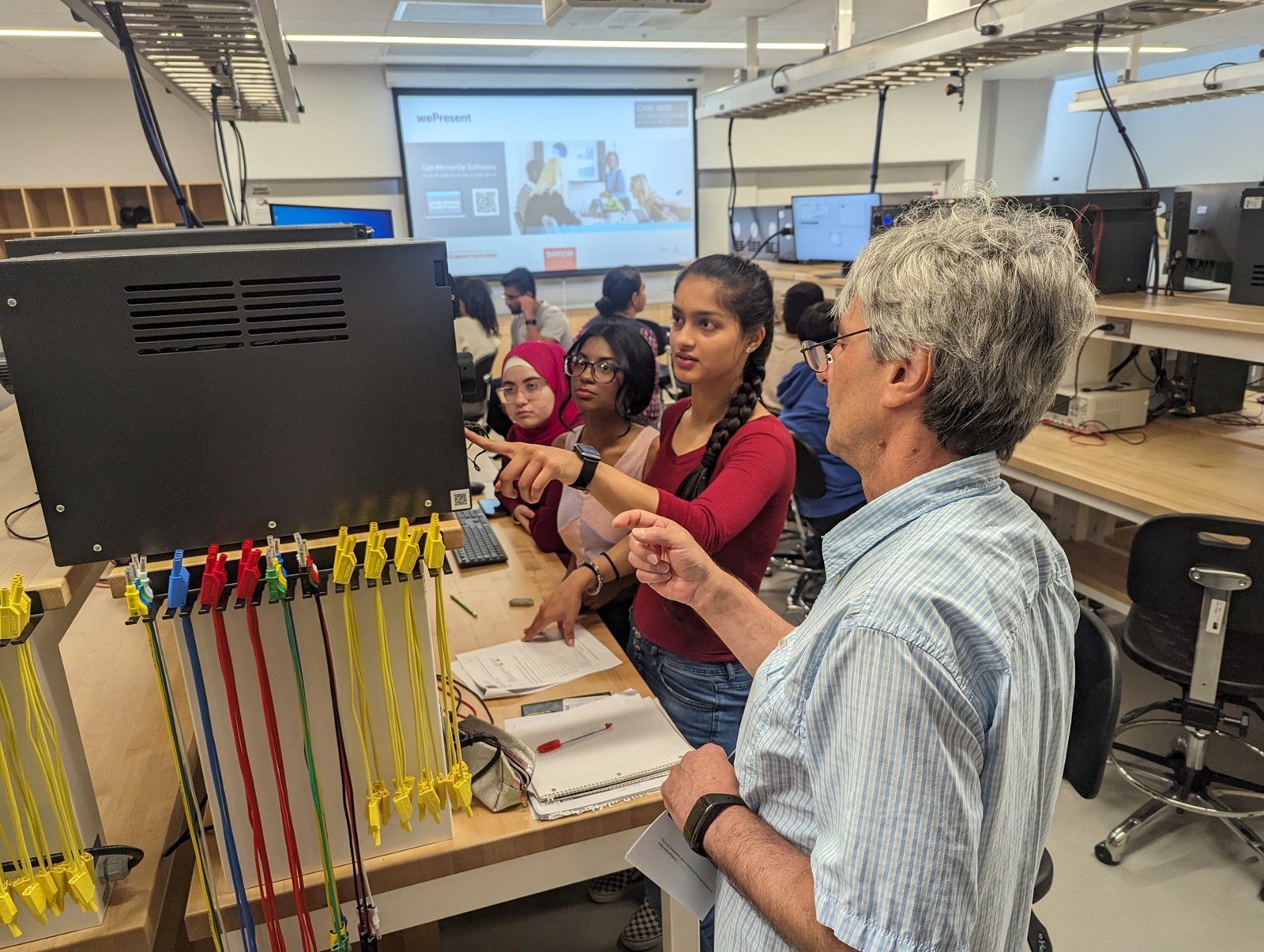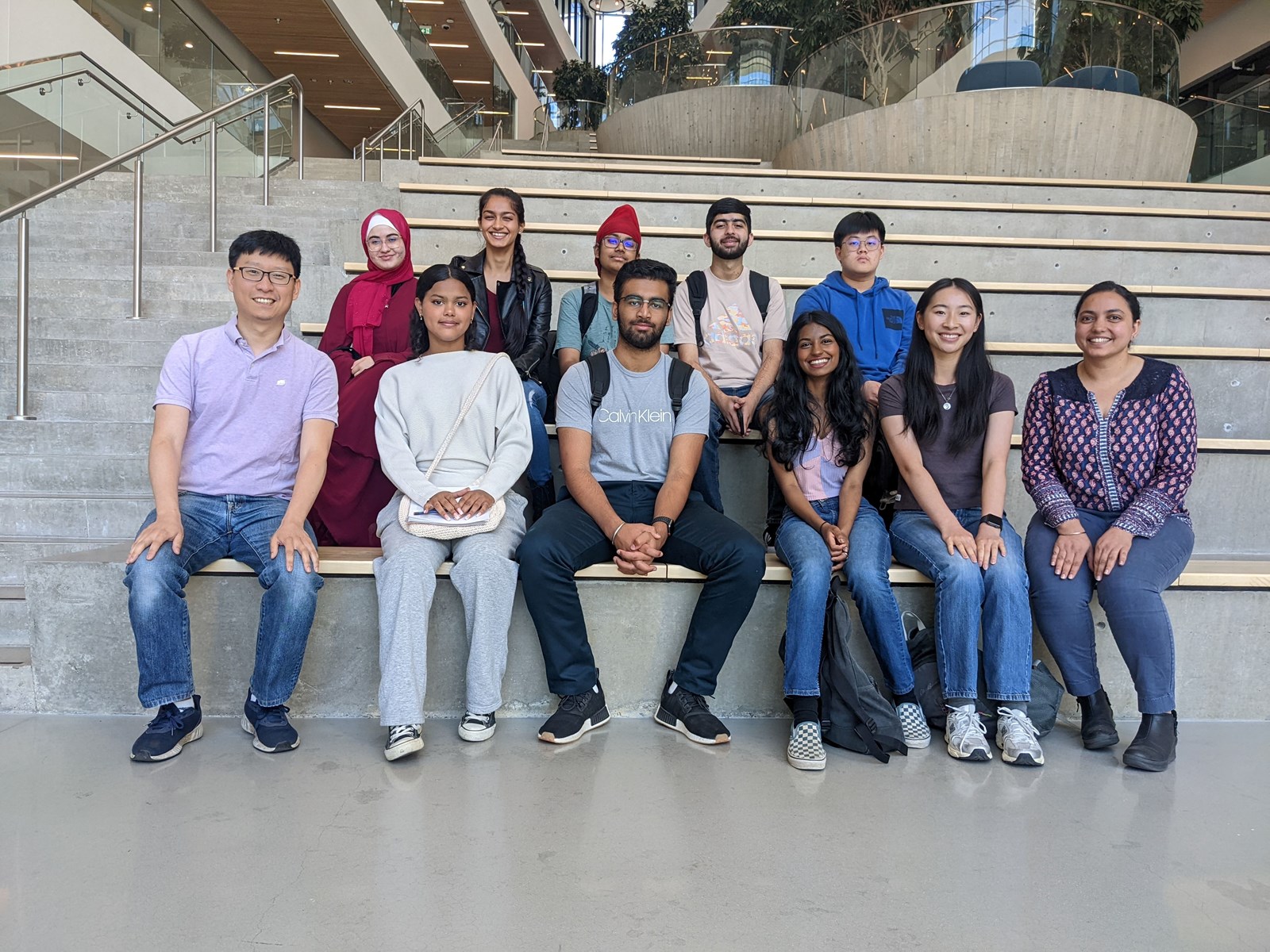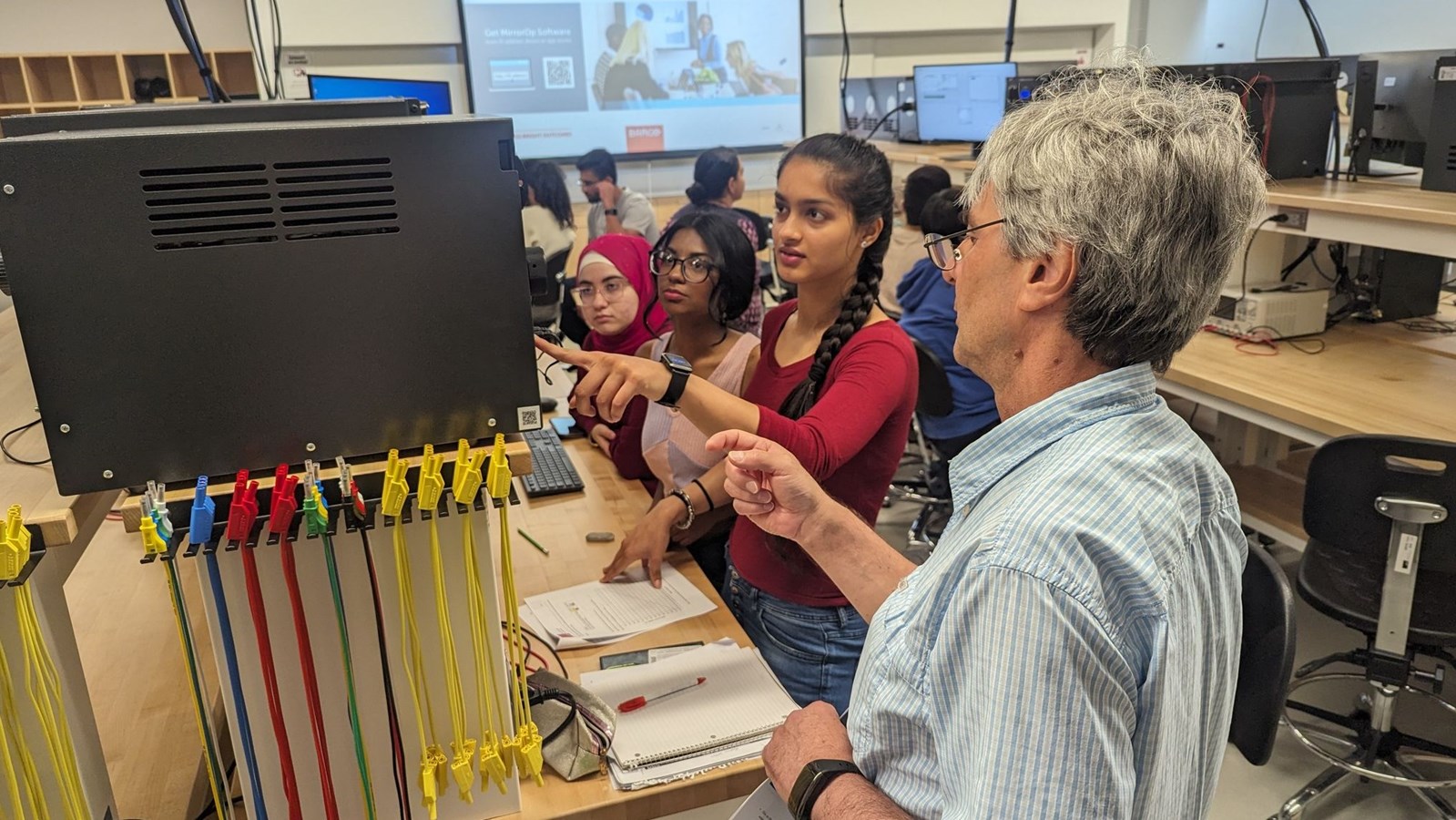Surrey students study sustainable energy with new summer science course
 Students were able to make use of lab and science equipment at Simon Fraser University.With electric vehicles becoming increasingly popular and sales of passenger gas-powered vehicles set to end in Canada by 2035, a group of Grade 11 and 12 students spent part of their summer figuring out what the future might look like as part of a new Surrey Schools summer science course.
Students were able to make use of lab and science equipment at Simon Fraser University.With electric vehicles becoming increasingly popular and sales of passenger gas-powered vehicles set to end in Canada by 2035, a group of Grade 11 and 12 students spent part of their summer figuring out what the future might look like as part of a new Surrey Schools summer science course.
The course, called Specialized Science 12, was offered in partnership with Simon Fraser University’s (SFU) School of Sustainable Energy Engineering during the month of July. Students not only explored the technology behind electric and hybrid vehicles, but also the supporting infrastructure and networks needed to allow for mass adoption of the technology.
“We really dove into exploring things around climate change, electric vehicles and sustainable energy generation,” said program coordinator Dennis Yoo, who is an International Baccalaureate science teacher at Semiahmoo Secondary during the regular school year.
The fact that the course also debuted during the hottest month ever recorded on Earth isn’t lost on Yoo.
“All of the students joined not because they were after a course credit, but because they were interested in climate change and sustainable energy,” he said.
Thanks to the partnership with SFU, the course also included a few trips to the university’s Surrey Campus, allowing students to make use of the School of Sustainable Energy Engineering’s labs and equipment.
“One of the things we were able to do there was run a lab studying the characteristics and makeup of a lead acid battery, which is basically the type of battery that you’d have in your car,” explained Yoo. “Students were also able to dive deeper into data analysis by learning to graph using data in Excel and explore use of other lab instruments.”
Yoo also had students learning about and building their own electrochemical cell in order to get a better understanding of how the technology works, as well as look at the widespread implementation of electric-based transportation as populations continue to move away from fossil fuels. This year's Specialized Science 12 class.
This year's Specialized Science 12 class.
“Converting everything to electric vehicles is not actually a direct solution to climate change because you’ve got to factor in things like where all of our power coming from,” he explained. “Even just looking here at B.C., there was report from BC Hydro that came out noting that even with the new Site C Dam planned, there's not going to be enough energy generated to meet our needs in future, so where is the rest of our energy going to come from?”
That and other solutions, said Yoo, are exactly what today’s students will need to grapple with as they look ahead to their post-secondary careers. And if the rest of their cohorts show the same enthusiasm as this year’s summer class, Yoo said the future appears to be in good hands.
To learn more about the SFU School of Sustainable Energy Engineering, click here.


